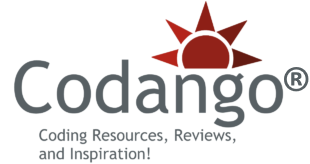Modern business processes demand flexibility, configurability, and reusability in automating decisions, validations, and actions across domains like entitlement assignment, pricing, fulfillment, and compliance. However, traditional hard-coded logic in Salesforce (Apex triggers, workflows, etc.) is often difficult to maintain and adapt as business requirements evolve.
Key Challenges
- Lack of Flexibility: Hard-coded rules require code changes for modifications.
- Redundancy: Similar logic is duplicated across objects and processes.
- Limited Reusability: Conditions and actions aren’t easily shared or reused.
- Business User Empowerment: Non-technical users can’t easily manage or update business rules.
Design Approach
To address these challenges, we propose a generic, extensible rules engine built on Salesforce custom objects. This engine enables administrators to define, manage, and execute rules declaratively, supporting a wide range of business scenarios.
Design Principles
- Configurability: Business logic is defined via metadata, not code.
- Reusability: Conditions (criteria) and actions are normalized and reusable.
- Extensibility: The model supports new rule types, criteria, and actions without major redesign.
- Maintainability: Centralized rule management reduces duplication and errors.
Data Model & Setup
Custom Objects Overview
Rule: Represents a business rule to be evaluated and executed.
- Rule Name: Unique name of the rule.
- Record Type: Categorizes rules (e.g., Entitlement, Fulfillment).
- Status: Draft, Active, Inactive, etc.
- Priority: Evaluation order.
- Start/End Date: Optional effective/expiration dates.
- Description: Rule description.
- Rule Expression: Logical expression (e.g., 1 AND (2 OR 3)).
- Where Clause: SOQL-style condition (optional).
Criteria (Condition): Defines an atomic, reusable condition.
- Criteria Name: Name of the condition.
- Record Type: Categorizes rules.
- Description: What this condition checks.
- Field Name: Field to evaluate (e.g., Asset.Product__r.Category).
- Operator: =, !=, >, <, IN, CONTAINS, IS NULL, etc.
- Value: Value to compare against.
- External Id: Unique identifier (e.g., FieldName+Operator+Value).
Rule Action: Defines what happens when a rule matches.
- Rule (Lookup): Parent rule.
- Record Type: Categorizes rules.
- Action Type: Create Record, Update Field, Assign Entitlement, etc.
- Action Parameter: Parameter for the action (e.g., Fulfill Date).
Rule Criteria (Junction): Links rules to criteria, supporting complex logic and reusability.
- Rule (Lookup): The rule this criterion belongs to.
- Record Type: Categorizes rules.
- Criteria (Lookup): The reusable condition.
- Negate Condition: Negate the condition (NOT logic).
- Criteria Number: For grouping/ordering in expressions.
Setup & Administration
- Rule Management: Business users can create, edit, and activate rules via a custom Lightning App.
- Criteria Library: Centralized management of reusable conditions.
- Action Catalog: Define and manage available actions (e.g., field updates, record creation).
- Validation: Ensure rules have at least one active criterion and action before activation.
- Auditing: Enable field history tracking for change management and compliance.
Applications & Use Cases
This rules engine can be applied across multiple business domains, such as:
- Entitlement Assignment: Automatically assign entitlements based on asset/product attributes.
- Pricing Rules: Apply discounts or surcharges based on customer, product, or order criteria.
- Order Validation: Enforce business policies before processing orders.
- Fulfillment Routing: Route requests to the correct team or system based on type/status.
- Compliance Checks: Ensure transactions meet regulatory or internal standards.
Example Flow
- Trigger: An event occurs (e.g., order created).
- Rule Evaluation: Active rules for the context are fetched and prioritized.
- Criteria Check: Each rule’s criteria are evaluated using the defined logic.
- Action Execution: If criteria are met, the corresponding actions are executed.
Extensibility & Future Enhancements
- Criteria Grouping: Support for nested/complex logic (e.g., (A AND B) OR (C AND D)).
- Action Chaining: Execute multiple actions in sequence.
- Rule Sets: Group rules for batch processing or scenario-based evaluation.
- Integration: Invoke external services or flows as actions.
Benefits
- Agility: Rapidly adapt to changing business needs without code changes.
- Consistency: Centralized logic reduces errors and duplication.
- Empowerment: Business users can manage rules directly.
- Scalability: Supports new rule types and actions as requirements grow.
Conclusion
A configurable rules engine on Salesforce empowers organizations to automate complex business logic with minimal technical overhead, ensuring agility, consistency, and maintainability as business needs evolve.
Have you implemented a rules engine in Salesforce or another platform? Share your experiences and thoughts in the comments!

